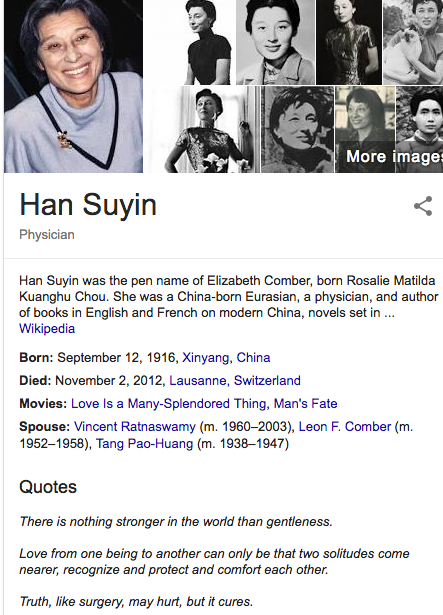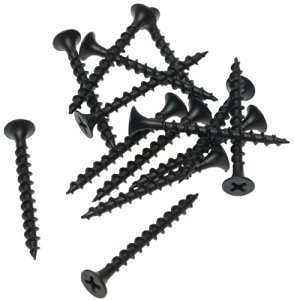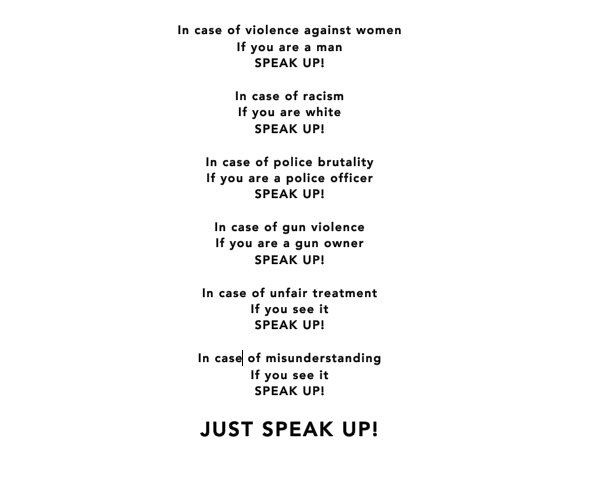The truth hurts, so they say. I recently ran across this quote:
Truth is like a surgery. It hurts but it heals.
A Lie is like a painkiller. It gives instant relief
but has side effects forever.
After googling, this quote seems to have an unknown origin, however, it may be based on a quote by Han Suyin: “Truth, like surgery, may hurt, but it cures.”
We can talk of Truth in terms of Facts, but even Facts can be questioned. What is the Truth? This is a question that is not as easy to answer as it seems it should be.
It seems to me that the kinds of Truth that are relevant to the quote, are Truths about perceptions, feelings, and consistencies. They are personal Truths.
When, or in what instances, does Truth “hurt”? When do we not want to hear the Truth? When do we hesitate to tell the Truth?
I am specifically interested in the dynamic of how truthful we are when we are interacting with other individuals. There are two sides to this – how we express information and how we take in information. There is telling – either the truth, a partial truth, a white lie, or a flat-out Lie – and there is listening and reacting to what is said to us.
As far as being the Truth-Teller, it seems to me that the act of telling the Truth doesn’t hurt the one doing the telling. It “hurts” the person who doesn’t want to hear the Truth. So why wouldn’t each of us always tell the Truth, if that doesn’t hurt? Why would we hesitate?
When we know that telling the Truth will hurt another person, we hesitate, because we don’t want to cause pain. We don’t want to put that person through surgery! If it’s not an important issue, we might tell a White Lie to avoid hurting that person, and that’s no big deal. That’s not a matter of surgery, right? The quote is talking about important Truth.
Maybe we previously told the Truth, and the pain that it caused resulted in the other person getting angry, lashing out, getting defensive, or otherwise reacting in a way that we don’t want to experience again. We don’t want to deal with the consequences, so we withhold the Truth in the future. Have you fallen into this pattern? Are you a habitual “nice guy” who tells people what they want to hear, who doesn’t want to disappoint anyone? We may each have a different level of tolerance for negative feedback or dealing with conflict which influences how often we tell the truth.
How Truthful we are with another individual may depend on what kind of relationship we have with that person. The quote as I take it, is talking about people we know and are close to. For one thing, if we tell a stranger a tough truth, we have no idea what kind of reaction we are going to get. AND we also probably don’t really have enough information in a lot of cases to really have the right facts to be sure we really know the whole truth.
Then there’s the kind of “truth-telling” which is not about another person personally, it’s stating an idea about “the way things are” and is more global. This also doesn’t seem like surgery to me, and doesn’t lead to healing. This is a different subject than what I am talking about right now.
We all probably know people who “tell it like it is” or are blunt, and this is a kind of truthful. But these people don’t always know enough to be saying what they say. I am not sure that the truth that comes from them is always a surgery that leads to healing.
In situations where you are dealing with a person you are close to, and you are dealing with an important issue, are you aware of how truthful you are? Are you aware of when you tell the Truth and when you withhold the Truth? Do you know why you are hesitating?
If you are not telling the Truth, how do you do it? Do you say words you know aren’t true, just to avoid the pain? Do you remain silent, to avoid having to say anything? Do you nod in agreement, even though you don’t agree? Do you say yes, when you mean no? Do you say no, when you mean yes? If someone asks you to be honest with them, do you have a hard time telling them the Truth?
Can you recognize the “side effects” of not telling the Truth?
Let’s switch to the other side of the equation of Truthfulness – that is, how do you receive information that is given to you? Do you actually want to hear the Truth, even if it hurts?
It’s a good question to think about: Is surgery worth it? Do you want to heal, even if that means you have to go through pain? Or would you rather avoid or dull the pain, and not deal with whatever your issue is? Do you see the downside of avoidance?
If your overriding desire is to avoid the pain, then I think you are not alone. We tend to want to avoid our own issues, inconsistencies, fears, weaknesses, shortcomings…. whatever things we have going on that someone else might want to point out to us.
HOW we communicate these kinds of Truths can make a huge difference in being able to face them. And to be perfectly honest, I am not sure that hearing a difficult Truth has to be so terribly painful. We have been told that the Truth hurts, but if someone we know is telling us something in Truth, and we know that they love us and want what is best for us, we might still feel sad or disappointed in ourselves – but not automatically devastated, right? If we recognize that every human being has their own “stuff” they are working on, we don’t have to feel like a “bad person” just because we aren’t “perfect.”
So what I get from thinking about the quote is, it is in my best interest to hear the Truth, even if I don’t like it. It is in my best interest to cultivate relationships with others who know me, love me, want what is best for me – and are also willing to be Truthful with me.
I think it’s also important to remember that the Truth is usually more complicated than we like to express. Developing an honest relationship with another person, also involves becoming good at communicating, back and forth, to explore whatever the issue is, and to refine our descriptions and the aspects of Truth.
When you tell someone a Truth as you see it, are you sure that you are right? Presenting this Truth as your perception, given the facts that you have, is a good way to keep the discussion open, as there might be something you don’t know that would change your conclusions. Are you open to additional information? Are you able to see the situation from the other person’s viewpoint?
When your friend tells you a Truth that doesn’t seem quite right, can you ask questions and understand what they are saying, before you react? Can you purposely put off your reaction, and give yourself time to ponder the issue at hand?
Can you offer more information, an explanation, without getting defensive? Do you immediately tell the other person what they did wrong, deflecting the subject so you don’t have to self-reflect? Do you know anyone you are close to, who has stopped having deep conversations with you?
I have a couple people in my life, who I have concluded that I just can’t be honest with. I care about them, I want them to be happy, and I respect that they are living their lives in the ways they choose, and all that is just fine. Yet I see inconsistencies that have negative consequences, and are subjects that they get very agitated and defensive about. They seem to have formed opinions about me, my actions, my motivations, etc. that I know are not Truth, but they don’t want to hear any different. They seem to want to be “right” and I am “wrong.” I feel misunderstood. I would love to be able to understand each other, and it may very well be that our two ways of being are incompatible going forward – and to me, that might just be how it is and that is ok. I am at peace with that. Ironically, they are not at peace with it. IF we could have an honest, non-judgmental discussion about it, we might be able to heal. But sometimes we have to be able to be Truthful to find healing.
Do you recognize situations of your own where this is going on?
My approach is to be aware of when someone you trust, who you know loves you and has your best interests at heart, tells you a “Truth” that you don’t like hearing. Can you listen to what they are saying? Can you acknowledge that it hurts to hear it, yet not react as if this person is attacking you? Do you launch a counter attack? Or do you listen and ask questions to clarify and learn more?
The point is not that you have to agree with the other person, if you think they don’t see your Truth. The point is to remain open, to be able to consider what they say without getting worked up about it. THEN you can continue the discussion, and either correct misconceptions or misunderstanding, OR perhaps agree to disagree.
Ultimately, whether the Truth acts as a surgery, depends on the person receiving that Truth. If we hear something disturbing from someone we know cares about us and has no ill intentions, we might benefit greatly by taking it into consideration and doing the hard work of addressing whatever it is. We have to engage the process for healing to occur.
Only I can initiate healing for myself. Others can provide support and feedback, but they cannot heal me.
We can each cultivate relationships in our lives that are Truthful. Have you ever asked a person you trust, to give you their honest take on something you are having a hard time with? Are you able to openly listen to their feedback?
Do you have a friend who knows all about your struggles? Do they listen? Do they feel comfortable giving you feedback? Do you do the same for them?
Having this kind of relationship with someone takes practice. If you cannot take criticism or negative feedback without reacting or getting defensive, it will be impossible to have a truly intimate, close relationship with the other person. Your relationship will remain superficial and limited.
If I want to have honest relationships with others, then I have to make sure that I am open to listening, even when I might not agree with or like what the other person is saying. I also have to be willing to be truthful, even when the conversation might be uncomfortable.
In my experience, I am finding more and more people who are working on having these kinds of relationships with others. It doesn’t necessarily feel “natural.” It can feel very vulnerable. Your attempts can fall flat on their collective faces. It’s a very different way of being, and not everybody is ready for it. We will still have misunderstandings, but we can practice working through them.
If you get nothing else out of this, I hope you pay more attention to when we all are Truthful with each other and when we are not. Then make your own choices — consciously. And if you have healing to do? Seek out people who care, who will be real with you, even if that’s uncomfortable to do.





